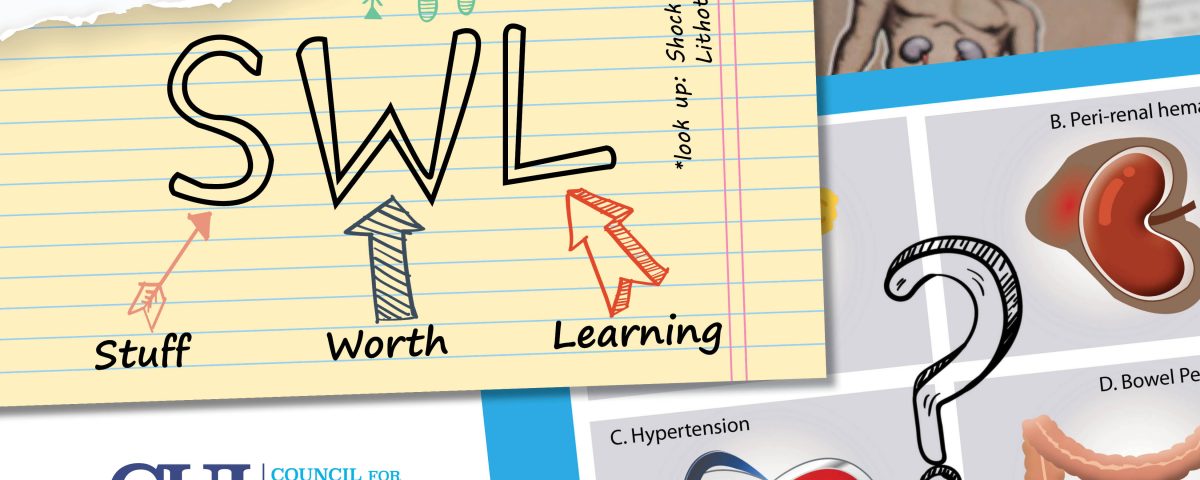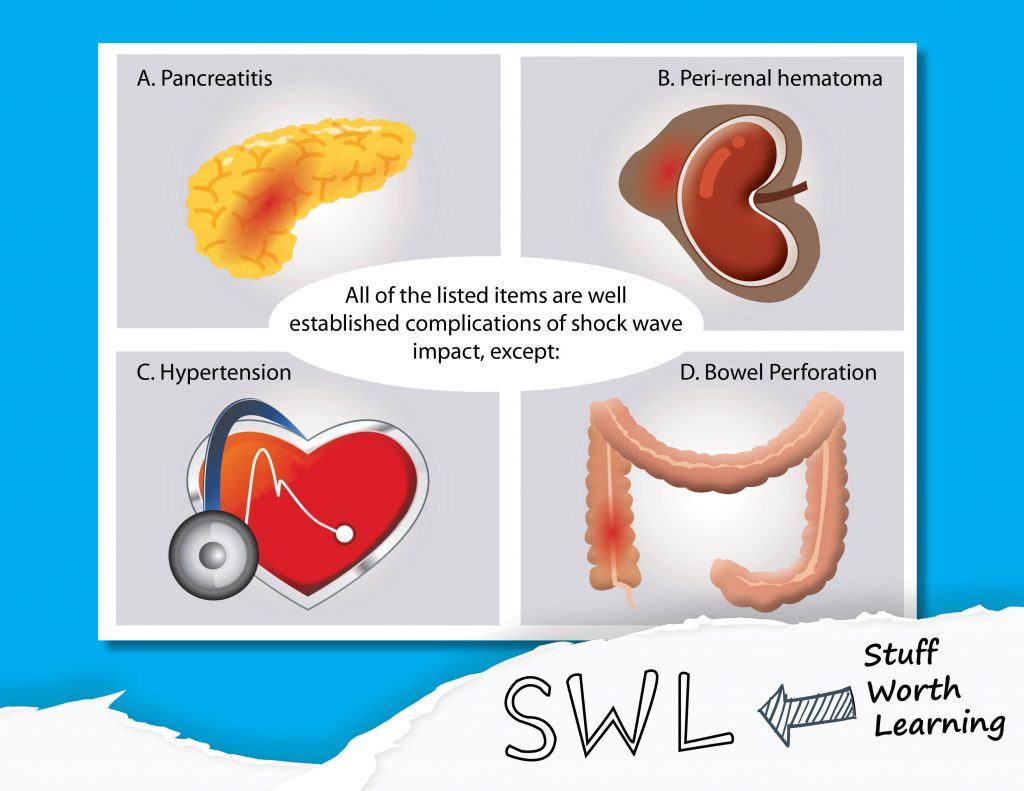
SWL = Stuff Worth Learning
At our recent Game of Stones Workshop at the AUA, attendees were offered the opportunity to take a post-workshop exam testing their knowledge of SWL related issues. While many took on the Challenge, we thought it might be fun (and educational!) to look at the questions that were most often missed. So here goes!
The Question:

The Answer: Hypertension
I know what you are thinking: hasn’t there been more written about the association of shock wave lithotripsy and high blood pressure than most of the other choices? And you would be correct.
Unequivocally, peri-renal hematoma has been documented as a complication of SWL. Post-SWL studies have shown that bleeding around the kidney is common, even though most never become of clinical significance.
Bowel perforations and pancreatitis are much less common. Indeed, they are rare, but well documented by case reports in the literature. Bowel perforations generally tend to occur where the ureter gets caught up in scarring from abdominal surgery or an inflammatory process (such as a smoldering appendicitis). The patient’s SWL is often performed in the prone position and/or given a high number of shocks. Pancreatitis etiology, on the other hand, is less clear. It has been seen after both right and left-sided SWL, and is believed to result from direct shock wave trauma to the pancreas (1).
Hypertension has often been associated with SWL. Multiple retrospective studies have suggested a connection between high blood pressure and SWL. However, multiple such studies have also said that there was no association of the two. The initial Mayo Clinic study said “yes there is” but their 2011 J of Urology study of over 6,000 patients said “no there is not.” All of these studies have been retrospective and most have been small and represented follow-up of urology patients. Kambeck’s 2011 paper, on the other hand, compared post-SWL patients with a general population of stone formers as controls: and found no association of SWL with hypertension (2). As Dean Assimos noted in a J Urol editorial comment, it is highly unlikely that anyone will ever go to the expense of doing a randomized clinical trial to study further.
As a consequence of all of this conflicting information and the Mayo study’s conclusion, there is no definitive evidence that hypertension is a complication of SWL.
- Skolarikos et al, European Assoc of Urol, ESWL 25 years Later: Complications and Their Prevention; European Urology 50: 981-990 (2006)
- Krambeck et al, J Urol; 185 (1): 164-169 (2011)
